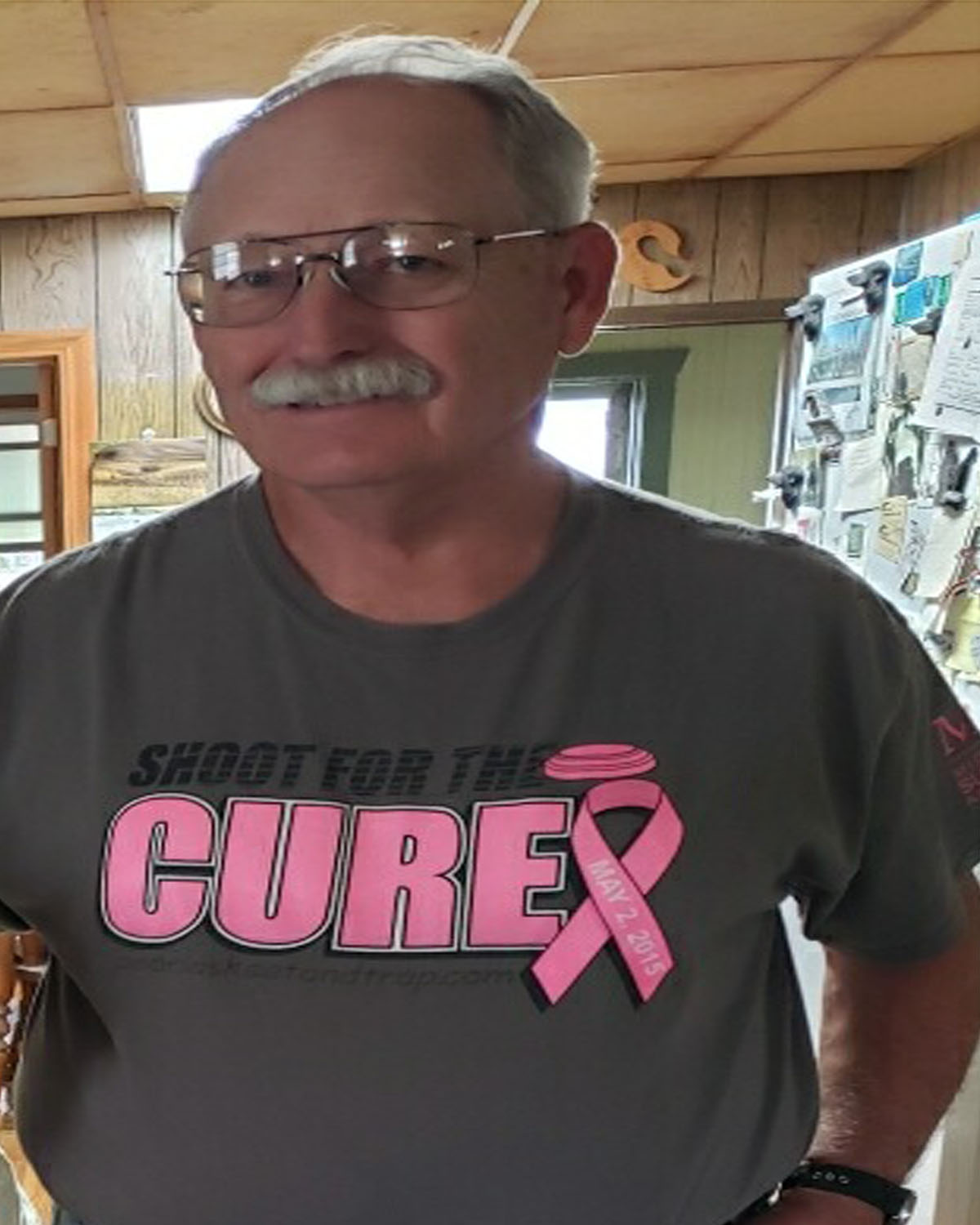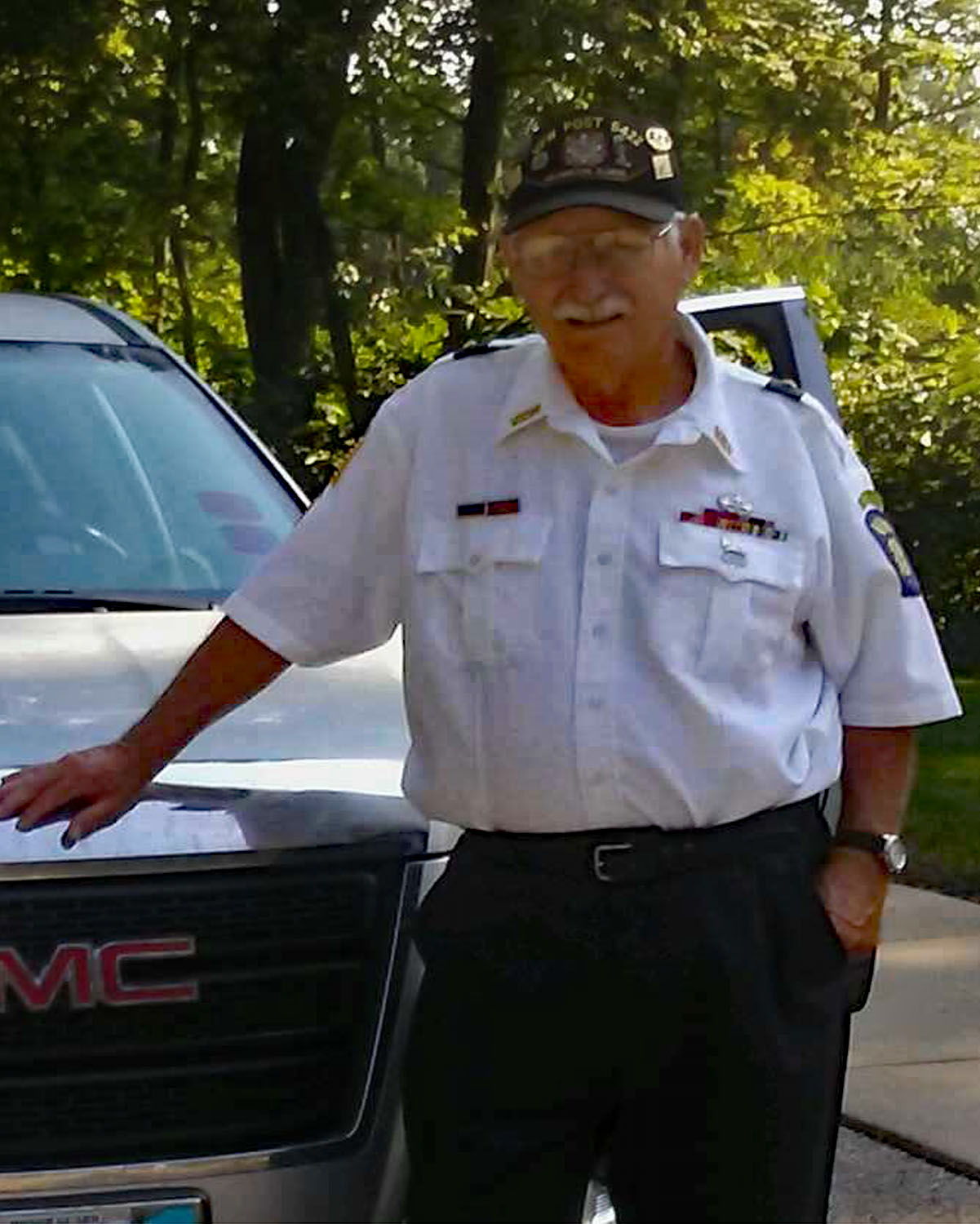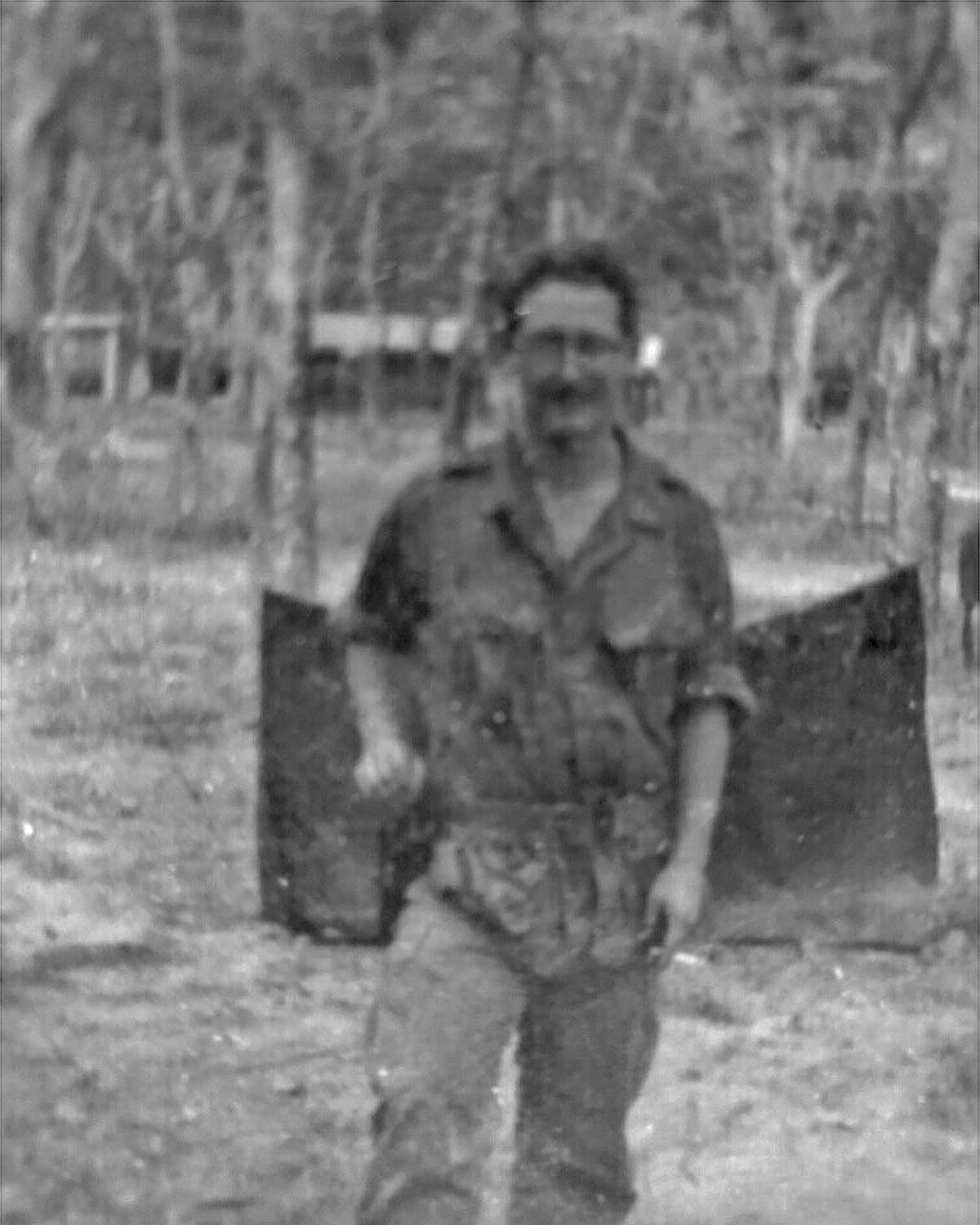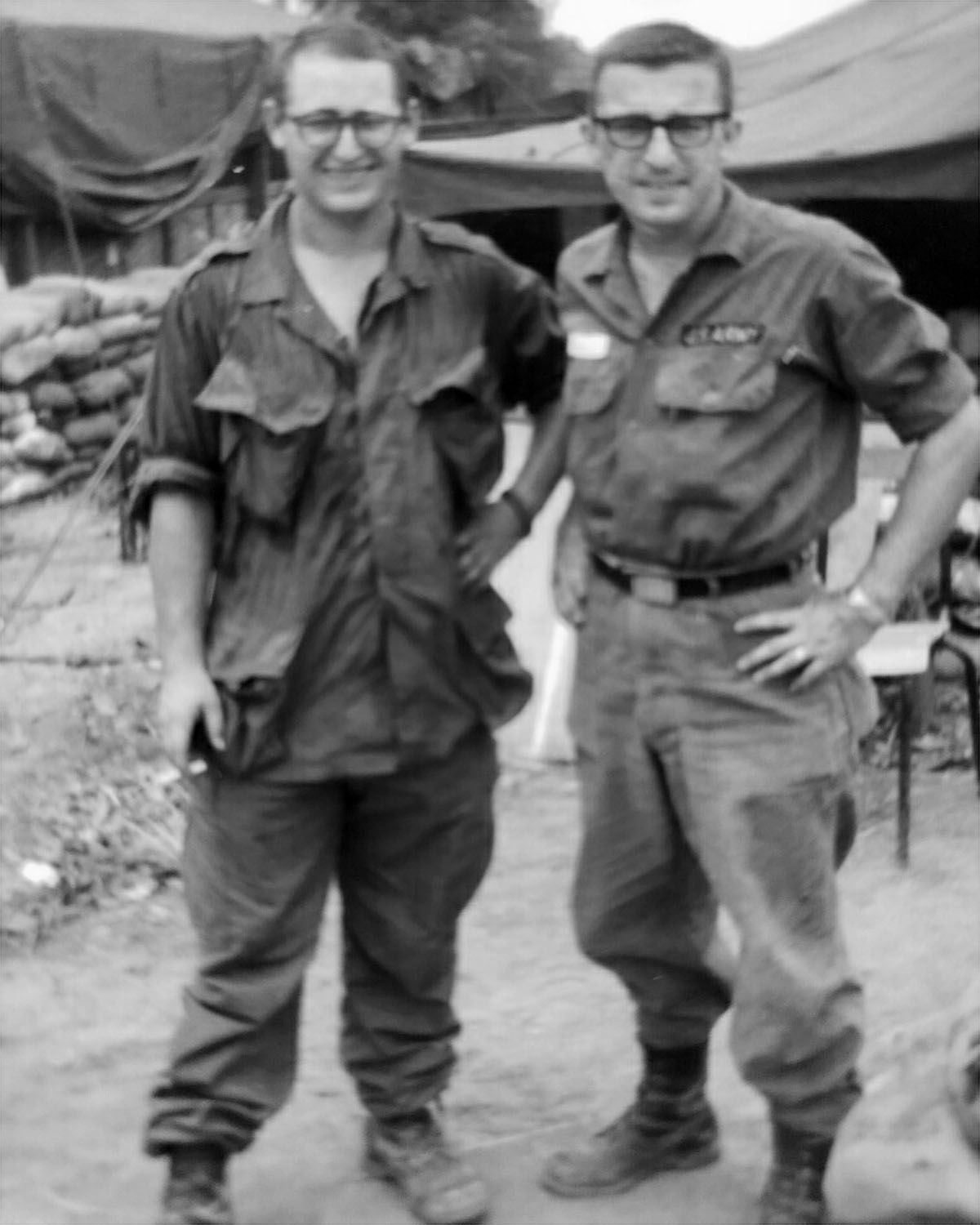U.S. Army Vietnam War Joliet, IL Flight date: 09/16/21
By Tom Grabowski Honor Flight Chicago Veteran Interview Volunteer
Fred was born in Blue Island, IL shortly after World War II. His family had moved to California when he was about eight years old but five years later, they moved back to Chicago and eventually settled in Tinley Park. They lived there until Fred was inducted into the Army in 1966. He had a sister, Cam who passed away in an accident in 1975.
After high school, Fred worked for an electrical parts manufacturer. When he received his draft notice in 1965, at age 19, he did not know where Vietnam was. He passed the physical and was classified 1-A, fit for duty. He then received his induction notice in early 1966 and reported to the induction center in downtown Chicago. Although he did not enlist, he had no doubt that he should go. His father served in the Army during World War II but never had to leave the country.
Fred says that being chosen to be in the Army was random. A uniformed sergeant would walk the ranks, looking everyone up and down. He would then say “you, you and you are in the Army. You, you and you are in the Marines.”
Fred received his Basic Training at Fort Polk, Louisiana from May through August, the hottest part of the year down there. He and his fellow trainees were pushed hard and Fred suffered a stress fracture in his foot. The drill sergeants were instructed not to train outside in the hottest weather. Fred remembers the drill sergeants would have the men sitting down listening to a lecture until an officer drove by. When the officer was gone, the drill sergeants would get everyone up on their feet and resume the grueling physical training.
At graduation from Basic Training, the presiding officers would announce what training each man would go to next. Fred was very surprised that he was assigned to be a medic. He thinks it was probably because he had taken a six week course in basic first aid in high school! He got to go home for two weeks before reporting to Fort Sam Houston in San Antonio, Texas for medical training. His medical training lasted eight weeks and he learned about different kinds of wounds, field dressings and broken bones. Fred now realizes that today’s paramedics and their training benefited from the combat medics experience under fire in Vietnam. His best example of this was how the combat medics learned not to remove a boot from an injured foot until the patient reached the hospital.
After medical training, Fred got a thirty day leave before reporting to Oakland Army Base for transport to South Vietnam. While he was home on leave, he tried not to think about where he was going. But one night he dreamt that he saw a white haired man come out of his closet, sit on the edge of his bed and tell him everything was going to be alright. The next morning he told his father what happened and his father asked Fred to describe him. When Fred did, his father showed him a photograph and asked “Was this the man?” Fred said that it was and his father told him that the man was Fred’s grandfather who had passed away before Fred was born.
In January of 1967, Fred reported to the Oakland Army Base in California for transport to South Vietnam. He says his memory of his arrival in Saigon as he stepped off the plane was the heat and the smell. He and his fellow soldiers boarded a bus for transport and while on the bus they noticed chain link fencing across the windows. They were told it was there so that Charlie couldn’t toss a grenade into the bus. Two days later he was trucked to Camp Rainier in Dau Tieng, about forty five miles north and west of Saigon. It was an active military area and he would spend the next ten and a half months there. It was so close to the Ho Chi Minh Trail that the flashlights of Viet Cong could be seen at night. Fortunately for the men at Base Camp Rainier, the Ho Chi Minh Trail was designated by the U.S. military as a no fire zone because of its proximity to some sacred religious areas.




From Rainier base camp, Fred accompanied patrols and would be out in the jungle for weeks at a time. They would return to base camp for a night before going out again. Fred says that on one patrol they had no food or water for four days because of the resupply choppers being fired upon. They made do with whatever water they could find in the jungle. When on patrol you had to be smarter than the enemy. At the end of the day, while it was still light, they would set up their camp. Then after darkness, they would quickly move their camp away to another place and watch the enemy launch mortars into the area they had just evacuated.
Fred was involved in two serious incidents where soldiers were wounded and killed. The first was after setting up camp for the night, they took enemy fire and one man was KIA and two wounded. After stabilizing the first man, Fred moved the man who had been shot three times into his foxhole and covered his body with his own body while the firefight raged around them. The KIA and the two wounded men were evacuated by chopper at first light. Many years later Fred would actually meet the man he covered with his own body at a reunion. The man was overcome with gratitude and emotion.
The second incident was where Fred earned his Bronze Star. Once again while on patrol their point man was suddenly shot and dropped to the ground. A colonel was with them, the one and only time a high ranking officer ever joined them on patrol. Fred had warned the colonel that if someone was shot in front of him to get out of the way because Fred would be running to his aid. The colonel did not move fast enough and Fred knocked him down to get to the wounded man. Fred says he does not know how he did it, but he picked up the wounded man and put him on his shoulder and picked up the man’s rifle and quickly got back to the group who were firing to cover him.
When Fred had reached his ETS (Expiration Term of Service) from the Army, he was in Virginia and he heard two men talking about him. The first one said “this soldier qualifies for a Bronze Star and also a unit citation. Which one should we give him?” When the first man said it was Doc Moffatt, the second man said “Oh, give him the Bronze Star for valor for sure.” Fred says that he is ninety percent positive that the second man was the colonel he had knocked over! When asked what the Bronze Star meant to him personally, Fred said it did not mean as much as the Combat Medic Badge.
Fred recalls a humorous story from his time in Vietnam. He had been out on patrol for three weeks and upon his return to base camp, he was told that something had happened to his replacement and he needed to go right back out. He went out for another four weeks. When returned, his platoon mates said how bad he smelled. He wound up having to burn those clothes. Years later, his lead paramedic and his CO from Camp Rainier shared that Fred had spent twice as much time in the field as most medics.
The night Fred arrived at home, he remembers going out to the middle of the street and yelling “I made it!.”
Fred returned to the same company he left before induction and stayed there until his retirement. He has been married to Susan for 56 years. Introduced by mutual friends, they live a quiet life in their home in Joliet. Fred is an avid outdoorsman who enjoys hunting, fishing and trap shooting. He soon will mark his 200,000th target.
Thank You, Fred, for all the soldiers you took care of and helped get back home. Enjoy your Honor Flight!


